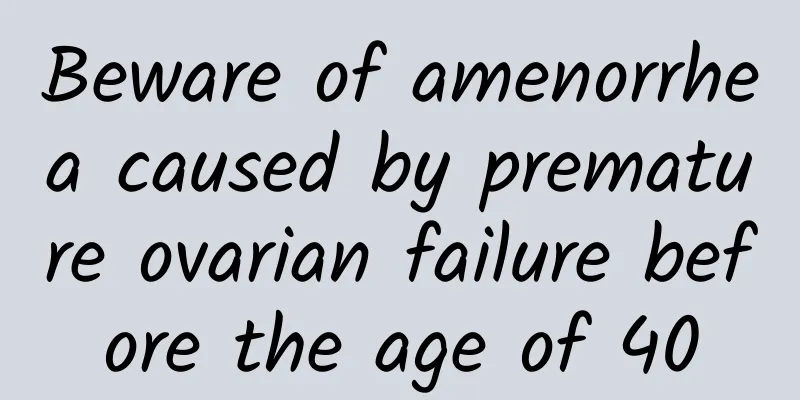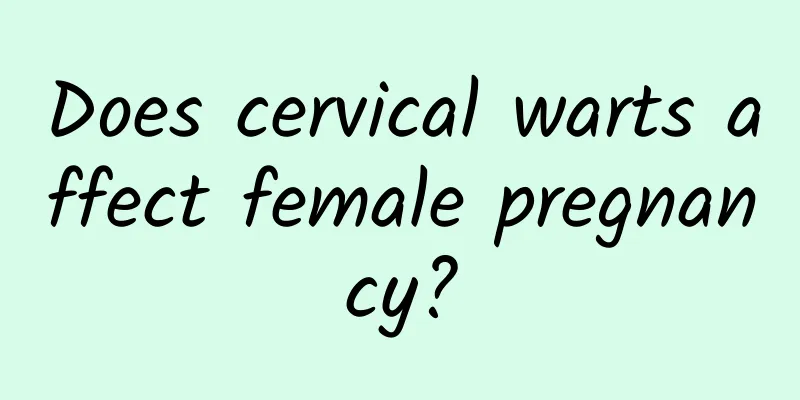Beware of amenorrhea caused by premature ovarian failure before the age of 40

|
Ovarian dysfunction, unable to respond to gonadotropins and synthesize sex hormones, resulting in low ovarian sex hormone levels and no cyclical changes in the endometrium, leading to amenorrhea. This situation often occurs before the age of 40, and is caused by high gonadotropin-induced amenorrhea due to ovarian failure, also known as premature ovarian failure. Premature ovarian failure is a condition in which the ovaries have low function or cannot synthesize sex hormones, which reduces the negative feedback on the hypothalamus-pituitary axis, resulting in increased gonadotropins and decreased estrogen levels. A survey of 1,850 women born between 1930 and 1950 found that the incidence of this disease was 0.09%, accounting for 20%-28% of primary amenorrhea and 4%-20% of secondary amenorrhea. So far, the exact cause of premature ovarian failure is still unclear, and it may be a syndrome caused by multiple factors, including cellular and molecular genetic factors, immune factors, hypogonadism caused by enzyme deficiency, iatrogenic premature ovarian failure, and infectious factors. Infectious factors are often seen in childhood and adolescence when a woman has mumps, which can be complicated by viral oophoritis, leading to partial or complete loss of ovarian function and premature ovarian failure. Severe suppurative, tuberculous, and gonococcal pelvic inflammatory diseases can also cause ovarian dysfunction. Premature ovarian failure is not irreversible. There are still many cases of natural remission and successful drug-induced ovulation. The traditional concept is that patients with premature ovarian failure have ovarian failure and very few follicles grow. In recent years, many scholars have found that premature ovarian failure is not irreversible. About 25% of patients may recover follicle growth within 1-5 years. The clinical application of assisted reproductive egg donation technology brings new hope to patients who have failed drug-induced ovulation. Therefore, patients who want to have children should not give up treatment. |
<<: If you don't have your period at 18, beware of primary amenorrhea
>>: The treatment of ovarian cysts should be based on the actual situation of the patient
Recommend
Clinical manifestations of patients with dysfunctional uterine bleeding
Excluding causes such as organic lesions and bloo...
What is the reason for recurrent cervical erosion?
As we all know, cervical erosion is a gynecologic...
Chemotherapy for ectopic pregnancy
Chemotherapy for ectopic pregnancy is a new minim...
What causes bleeding and pain during ovulation?
Bleeding and pain during ovulation are usually ca...
What fruits can I eat after abortion surgery? What can I eat after painless abortion surgery to recover quickly?
Abortion is a common postoperative recovery perio...
How many mm of uterine fibroids are recommended for surgery?
Uterine fibroids generally require surgery if the...
What are the dangers of amenorrhea in women
Amenorrhea poses a variety of potential hazards t...
What are the symptoms of pelvic inflammatory disease in women
What are the symptoms of pelvic inflammatory dise...
Will I have dysmenorrhea after uterine fibroid surgery? What should I do if I have dysmenorrhea after uterine fibroid surgery?
Women experience pain in the abdomen and waist be...
Prevention of cervical hypertrophy should actively control the primary pathogens
Women should change their underwear frequently, a...
Recognize the symptoms of vaginitis according to its type
In recent years, the incidence of vaginitis has b...
What is the reason why vaginitis cannot be cured for a long time?
Vaginitis is a manifestation of gynecological inf...
That one can also be very active! Create a 28-day jogging plan for yourself
Many women must have had similar questions: when ...
Daily care measures for patients with cervical condyloma
There are many diseases in life, big and small, i...
Causes of non-menstrual bleeding
Causes of non-menstrual bleeding: Women may exper...









